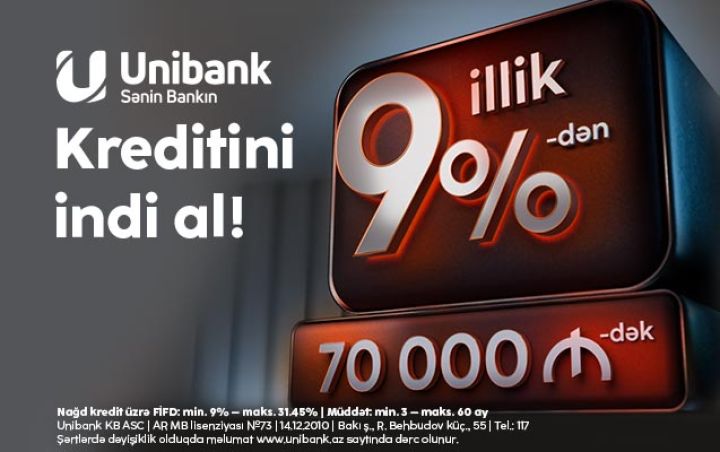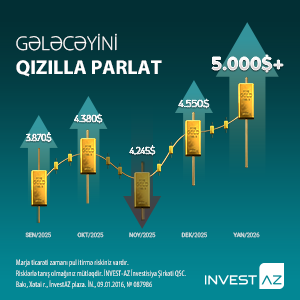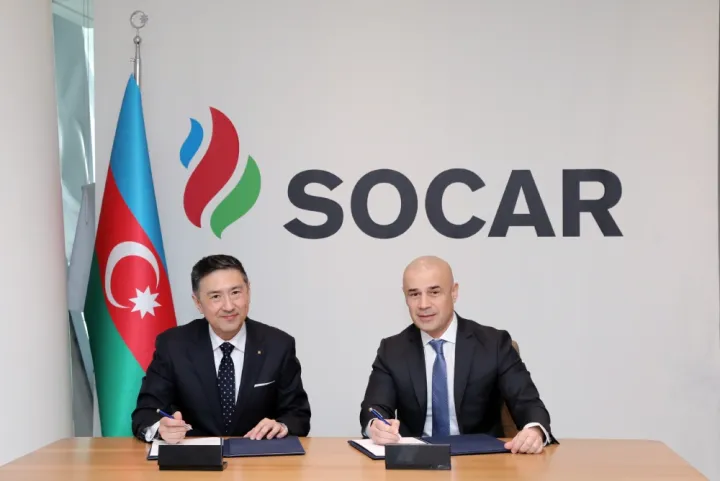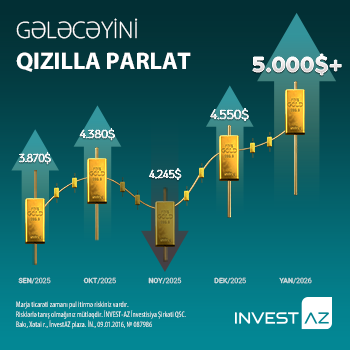"Moodys" Azərbaycanın reytinqini təsdiq etdi

Beynəlxalq kredit reytinqi agentliyi "Moody's Investors Service" ("Moody's") Azərbaycan hökumətinin uzunmüddətli emitent və təminatsız borc reytinqini təsdiq edib.
"Marja" agentliyin açıqlamasına istinadən xəbər verir ki, Azərbaycanın reytinqi "Sabit" proqnozla, "Ba2" səviyyəsində təsdiq edilib.
15 DƏQİQƏYƏ TƏCİLİ PUL KREDİTİ
Bundan öncə də Azərbaycanın reytinqi “Ba2” səviyyəsində və “stabil” proqnozla təsdiq edilmişdi. Beləliklə, Agentlik Azərbaycanın reytinqini qaldırmayıb.
"Moody's" qeyd edib ki, "Sabit" proqnozu saxlamaq qərarı balanslaşdırılmış riskləri əks etdirir.
Moody`s”in ekspertləri qeyd edirlər ki, reytinqin təsdiq olunmasını əsas amilləri aşağıdakılardır: cari büdcə islahatlarına əsaslanan hökumətin artan təmiz kreditor mövqeyi; bank sektorunda risklərin tədricən azalması; iqtisadiyyatın şaxələndirilməsinin məhdud perspektivləri və mümkün şoklara iqtisadiyyatın cavab vermək qabiliyyətini azaldan institusional məhdudiyyətlər.
“Moody`s”in gözləyir ki, Azərbaycanın ümumi dövlət borcu 2018-ci ildə ÜDM-in 33%-dən 2020-ci ilədək ÜDM-in 29%-dək azalacaq.
“Ötən il Azərbaycan dövlət xərclərini məhdudlaşdıran qaydaları qəbul edib. Bu qaydalar hökumətin karbohidrogenlərin ixracından gəlirlərdən asılılığın, illik qeyri-neft kəsirinin azalması, neftin aşağı qiyməti və ya iqtisadi artımın mühüm dərəcədə sürətinin azalması zamanı kontrsiklik xərcələrin yol verilməsinə yönəldilib. 2018-2025-ci illər üçün uzunmüddətli borc strategiyası birbaşa dövlət borcunun azalmasına yönəlib və yeni birbaşa borcun yaranması və yeni zəmanətlərin verilməsinə məhdudiyyət qoyur”, - agentliyin məlumatında deyilir.
Agentlik ortamüddətli perspektivdə Azərbaycanın karbohidrogen sektorundan asılılığının mühüm dərəcədə dəyişəcəyini gözləmir. “Moody`s”in analitiklərinə əsasən, ötən il sektor ümumi ixracın 90%-dən çoxunu, sənaye istehsalının 75%-ni, birləşdirilmiş dövlət gəlirlərinin 60%-ə yaxınını təmin edib.
““Moody`s”in qiymətləndirdiyi karbohidrogen istehsalçı ölkələr arasında neft-qaz sektprundan asılılıq ən yüksək səviyyədədir. Gəlirlərin daha aşağı səviyyədə olması və daha iri hımcdə karbohidrogen istehsal edən ölkələrlə müqayisədə iqtisadiyyatın kiçik həcmi Azərbaycanın iqtisadi sabitliyini daha da məhdudlaşdırır”, - agentliyin mütəxəssisləri qeyd edirlər
Moody's affirms Azerbaijan's Ba2 rating; maintains stable outlook
Singapore, April 12, 2019 -- Moody's Investors Service ("Moody's") has today affirmed the Government of Azerbaijan's long-term issuer and senior unsecured debt ratings at Ba2 and maintained the stable outlook.
The key drivers of the rating affirmation are:
1. A growing net creditor position of the government, bolstered by ongoing fiscal reforms;
2. Banking sector risks that are gradually receding, although the financial system remains fragile; and
3. Limited prospects for economic diversification, and institutional constraints that limit the shock absorption capacity of the economy
The decision to maintain the stable outlook reflects balanced risks. On the upside, ongoing fiscal and financial sector reforms may shore up the resilience of the sovereign credit profile to shocks including lower oil prices, and contribute to improving policy credibility and effectiveness to a greater extent than Moody's currently expects. At the same time, on the downside, credit resilience and the commitment to and effectiveness of reforms are still relatively recent and have not been significantly tested in a less favourable environment, in particular for oil prices.
Concurrently, Moody's has affirmed the backed senior unsecured bond rating of Southern Gas Corridor CJSC (SGC), that benefits from an explicit guarantee from the government, at Ba2 and maintained the stable
outlook.
Azerbaijan's long-term local currency bond and deposit ceilings remain unchanged at Ba2. The Ba2 long-term foreign currency bond ceiling and Ba3 long-term foreign currency deposit ceiling are also unchanged. The
short-term foreign currency bond and deposit ceilings remain unchanged at Not Prime. These ceilings act as a cap on the ratings that can be assigned to the obligations of other entities domiciled in the country.
RATINGS RATIONALE
RATIONALE FOR THE RATING AFFIRMATION
A GROWING NET CREDITOR POSITION, BOLSTERED BY ONGOING FISCAL REFORMS
Azerbaijan's rating continues to be supported by the government's significant net asset position. Sovereign wealth assets at the State Oil Fund of the Republic of Azerbaijan (SOFAZ) were 1.7 times the sum of the
government's direct debt and its explicit guarantees as of the end of 2018, which underpins the government's fiscal strength, lowers government liquidity risk, and reduces external vulnerability. Moody's expects the
ongoing fiscal reforms, including the implementation of a new fiscal rule and the government's debt strategy, to bolster the net creditor position further.
A key aspect of the fiscal reforms is the introduction of a new fiscal rule, which has been adopted for the government's 2019 budget. By imposing strict limits to the growth of consolidated government expenditure, Moody's expects the fiscal rule to primarily instil fiscal prudence and limit procyclical spending when oil prices are high, which would support ongoing saving of hydrocarbon revenue at current oil prices.
The fiscal rule also aims to reduce the reliance of the government on hydrocarbon revenue by targeting annual declines in the non-oil deficit,and allowing countercyclical spending through its escape clause, which will likely be triggered when oil prices fall sharply or when economic growth slows significantly. If effectively implemented, these provisions will contribute to greater economic stability. This would be aided by the greater predictability and lower procyclicality of SOFAZ transfers to the state budget that will provide stability to the manat through regular auctions of US dollars by the Central Bank of Azerbaijan (CBAR). However, Moody's believes the economic benefits of the fiscal rule will depend on its consistent implementation over time, given the discretionary nature of some elements, including activation of the escape clause.
Further supporting the government's fiscal strength, its long-term debt
strategy for 2018-25 targets a reduction in the direct government debt
burden and places restrictions on the incurrence of new direct debt and
the provision of new guarantees. If adhered to, the debt strategy and
fiscal rule will allow Azerbaijan to gradually restore some of the lost
fiscal space over 2015-17, although the debt burden will remain higher
relative to levels prior to 2015.
Moody's expects the government's debt burden to decline to 29% of GDP by
2020, from around 33% as of the end of 2018 and a peak of slightly more
than 37% as of the end of 2017. The debt burden will nevertheless remain
higher than the average debt to GDP ratio of around 12% between 2009 and
2014. Moody's assumptions for the government's debt burden includes all
of its direct debt and some explicit guarantees, which largely consists
of guarantees that were issued to Aqrarkredit, the state-owned
enterprise that acquired bad assets from the International Bank of
Azerbaijan (IBA) during IBA's restructuring.
BANKING SECTOR RISKS ARE GRADUALLY RECEDING, BUT THE FINANCIAL SYSTEM
REMAINS FRAGILE
Azerbaijan's banking sector weighs on the sovereign's credit profile,
reflecting contingent liabilities that remain from the restructuring of
IBA and bad asset acquisition of Aqrarkredit, and impaired credit
intermediation, following a sharp credit contraction over 2016-18. While
Moody's expects ongoing financial sector reforms and initiatives to
gradually lower contingent liability risks from banks and support the
nascent credit recovery, confidence in the financial system remains
fragile and high levels of dollarisation will continue to pose risks to
the banking sector.
Moody's expects the ongoing financial sector reforms to increase the
quality of prudential policymaking, bank supervision, and information
sharing, which will allow banks to better assess and manage credit risks.
Key reforms include the establishment of the Financial Market Supervisory
Authority (FIMSA) as a standalone prudential regulator and supervisor, a
new credit bureau, and a collateral registry for moveable assets. In
particular, FIMSA is implementing new banking regulations and its powers
will be formalised under a new FIMSA Act, which Moody's expects will be
approved by parliament and the president by 2020.
Stricter regulatory requirements for capital adequacy and on foreign
exchange exposure will enforce higher levels of bank capitalisation and
limit foreign exchange risks relative to 2014-17. In particular, Moody's
estimates that tangible common equity as a percent of risk-weighted
assets across Moody's rated banks, which account for around two thirds
of the banking sector, has risen to an average of 20% as of the end of
2018 from 12% as of the end of 2016. The increase has been one of the
largest across banking systems in the region over this period. The higher
capital levels have in part allowed credit growth to the real economy to
resume in the fourth quarter of 2018. This growth has mainly been driven
by loans in local currency, which will be less vulnerable to sharp
depreciations of the manat.
While nonperforming loan (NPL) levels remain high at around 12% of total
loans as of the end of 2018, Moody's also expects asset quality to
improve, driven by the ongoing economic recovery and aided by the
recently announced measures aimed at reducing the debt burden of small,
retail borrowers. The measures would reimburse small borrowers for the
large foreign exchange depreciation in 2015 and encourage banks to
restructure long-overdue loans, costing less than 2% of GDP but
contributing to lower NPLs in the banking system.
However, the sector remains fragile as confidence in the financial system
remains weak and dollarisation levels remain high. The government
extended its unlimited deposit guarantee on qualifying deposits for
another year through March 2020, which in Moody's view demonstrates a
deficit in confidence in banks. Dollarisation levels are also among the
highest in the region, with foreign currency deposits accounting for 65%
of total deposits as of the end of February 2019, compared to foreign
currency loans that account for 37% of total loans. This implies ongoing
vulnerability of bank balance sheets to local currency depreciation.
LIMITED PROSPECTS FOR ECONOMIC DIVERSIFICATION, INSTITUTIONAL CONSTRAINTS
LIMIT THE SHOCK ABSORPTION CAPACITY OF THE ECONOMY
Notwithstanding the growing net creditor position of the government and
the gradual reduction in banking sector risks, Azerbaijan's economy and
sovereign credit profile will remain highly exposed to developments in
the hydrocarbon sector. Limited prospects for economic diversification
and institutional challenges ranging from relatively weak policy
credibility and effectiveness to uncertainties over the rule of law will
continue to constrain the shock absorption capacity of the economy.
Moody's does not expect a significant reversal in Azerbaijan's reliance
on its hydrocarbon sector over the medium term. The hydrocarbon sector
contributed more than 90% to total exports and 75% to industrial
production in 2018, while hydrocarbon revenue accounted for around 60% of
consolidated government revenue in the same year. The exposure to the
hydrocarbon sector is among the highest across hydrocarbon producers that
Moody's rates. Lower income levels and a smaller economy relative to
other highly concentrated hydrocarbon producers further limit
Azerbaijan's economic resilience.
The government has set its sights on economic diversification through the
11 strategic roadmaps covering sectors such as agriculture, financial
services, heavy industry and manufacturing, tourism, and transport and
logistics. However, structural and institutional challenges will, in
part, hamper the government's efforts, with diversification outcomes
likely to vary across sectors. These challenges include skills shortage,
rule of law uncertainty, the dominance of large holding companies, and
lack of access to the World Trade Organisation, which impedes the
development of goods trade beyond hydrocarbons. Moody's assesses tourism
and transport and logistics as having relatively greater diversification
potential, with benefits materialising only over a long time.
Furthermore, policy credibility and effectiveness remain relatively low
compared to similarly rated peers and other major hydrocarbon producers.
Although the ongoing implementation of fiscal and financial sector
reforms, as well as more proactive central bank communication through a
monetary policy calendar, point to a modest increase in institutional
capacity, significant uncertainty remains over the exchange rate regime
and stability in the value of the manat. Azerbaijan's exchange rate
regime has been officially floating since December 2015, but the value
of the manat has been very stable against the US dollar since early 2017.
In Moody's view, the lack of volatility in the manat raises questions
over the commitment of the central bank to a floating rate regime, while
the stability of the exchange rate may also result in complacency among
businesses and consumers and run counter to longer-term efforts to allow
the exchange rate to be a shock absorber for the economy.
RATIONALE FOR THE STABLE OUTLOOK
The stable outlook reflects balanced risks to the ratings.
On the upside, ongoing fiscal and financial sector reforms may shore up
the resilience of the sovereign credit profile to shocks, including lower
oil prices, by lowering the government debt burden and banking system
risk beyond Moody's expectations, and contribute to increasing policy
credibility and effectiveness to a greater extent than Moody's currently
expects. Further increases to the credibility and effectiveness of
macroeconomic policies, including exchange rate flexibility and the
transition towards inflation targeting, would also raise institutional
strength.
On the downside, credit resilience and the commitment to and effectiveness
of reforms are still relatively recent and have not been significantly
tested in a less favourable environment, in particular for oil prices. A
sharp depreciation of the manat, while not in Moody's baseline scenario,
would also raise economic and banking sector risks.
WHAT COULD CHANGE THE RATING UP
The rating would likely be upgraded if ongoing and further reforms,
including in macroeconomic and financial policies, looked likely to
raise policy credibility and effectiveness significantly and provide more
powerful buffers against shocks. This would likely be reflected in part
through prospects of a more rapid decline in the government's debt burden
and contingent liabilities than Moody's currently expects. Over time, it
would also probably involve marked progress in economic diversification
that would reduce the economy's high dependence on hydrocarbons.
WHAT COULD CHANGE THE RATING DOWN
The rating would likely be downgraded if it became increasingly likely
that the fiscal reforms that support macroeconomic stability and a
sustained reduction in the debt burden lose momentum or potentially
reverse. Banking sector weaknesses resurfacing and significantly raising
contingent liability risks would also put downward pressure on the
rating. A sharp escalation of the conflict in Nagorno-Karabakh that would
weigh on economic activity and government finances would also likely lead
to a downgrade.
GDP per capita (PPP basis, US$): 17,529 (2017 Actual) (also known as Per
Capita Income)
Real GDP growth (% change): 0.1% (2017 Actual) (also known as GDP Growth)
Inflation Rate (CPI, % change Dec/Dec): 7.9% (2017 Actual)
Gen. Gov. Financial Balance/GDP: -1.6% (2017 Actual) (also known as
Fiscal Balance)
Current Account Balance/GDP: 4.1% (2017 Actual) (also known as External
Balance)
External debt/GDP: 37.3% (2017 Actual)
Level of economic development: Low level of economic resilience
Default history: No default events (on bonds or loans) have been recorded
since 1983.
On 09 April 2019, a rating committee was called to discuss the rating of
the Azerbaijan, Government of. The main points raised during the
discussion were: The issuer's economic fundamentals, including its
economic strength, have not materially changed. The issuer's
institutional strength/ framework, have not materially changed. The
issuer's fiscal or financial strength, including its debt profile, has
not materially changed. The issuer's susceptibility to event risks has
not materially changed.
Müştərilərin xəbərləri

Azercell Gənclər Günü ərəfəsində Beynəlxalq İnformatika Olimpiadası üzrə milli komanda ilə görüş keçirib
SON XƏBƏRLƏR
- 2 ay sonra
-
5 gün sonra
Yalnız yağın ödənişini edin — Filtr və işçilik bizdən hədiyyə!
-
4 d. əvvəl
Trampdan İrana “əgər razılaşa bilməsək, pis şeylər olacaq” mesajı
-

-
29 d. əvvəl
Qızıl, itkilərin bir hissəsini geri alaraq yenidən bahalaşıb
-
9 saat əvvəl
Qızıl Trampın FED sədri namizədliyindən sonra ucuzlaşmaqda davam edir
- 10 saat əvvəl
- 10 saat əvvəl
-
12 saat əvvəl
Azərbaycan “Cənub Qaz Dəhlizi”nin bir hissəsini ərəblərin şirkətinə satdı - MÜQAVİLƏ İMZALANDI
- 12 saat əvvəl
-
12 saat əvvəl
SOCAR ilə “Yokogawa Europe B.V.” şirkəti arasında Anlaşma Memorandumu imzalanıb
-
15 saat əvvəl
Ölkənin birinci bankı və birinci universiteti arasında memorandum imzalandı
-
15 saat əvvəl
Bank of Baku-nun Mastercard Digital Bolkart kartı qazandırır - 5% KEŞBEK və PULSUZ GEDİŞLƏR!
Son Xəbərlər
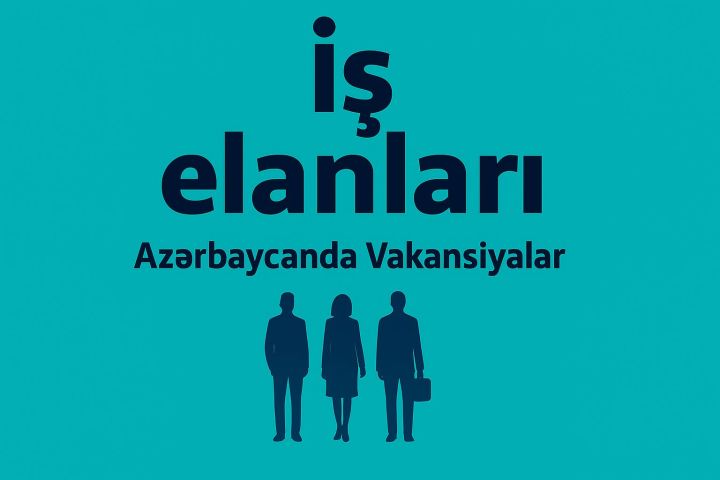
Azərbaycanda Vakansiyalar - Azvak.az

Yalnız yağın ödənişini edin — Filtr və işçilik bizdən hədiyyə!

Trampdan İrana “əgər razılaşa bilməsək, pis şeylər olacaq” mesajı

Qızıl, itkilərin bir hissəsini geri alaraq yenidən bahalaşıb

Bakıda daha bir "Pizza Hut" restoranı açılacaq
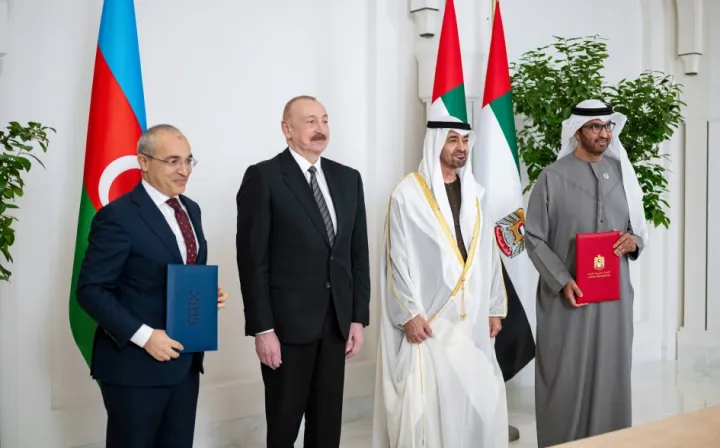
Azərbaycan “Cənub Qaz Dəhlizi”nin bir hissəsini ərəblərin şirkətinə satdı - MÜQAVİLƏ İMZALANDI

Azercell Gənclər Günü ərəfəsində Beynəlxalq İnformatika Olimpiadası üzrə milli komanda ilə görüş keçirib
Ən çox oxunanlar

Bank of Baku-nun Mastercard Digital Bolkart kartı qazandırır - 5% KEŞBEK və PULSUZ GEDİŞLƏR!

Dolların sabah üçün rəsmi məzənnəsi müəyyən olunub

Tesla-nın Avropadakı satışlarında azalma 2026-cı ildə də davam edir

İnnovasiya və Süni İntellekt” üzrə təqaüd proqramına qeydiyyat davam edir - Gənclərin nəzərinə

Prezident İlham Əliyev Birləşmiş Ərəb Əmirliklərinə səfərə gəlib











